How Good are Liquid Diets for Weight Loss?
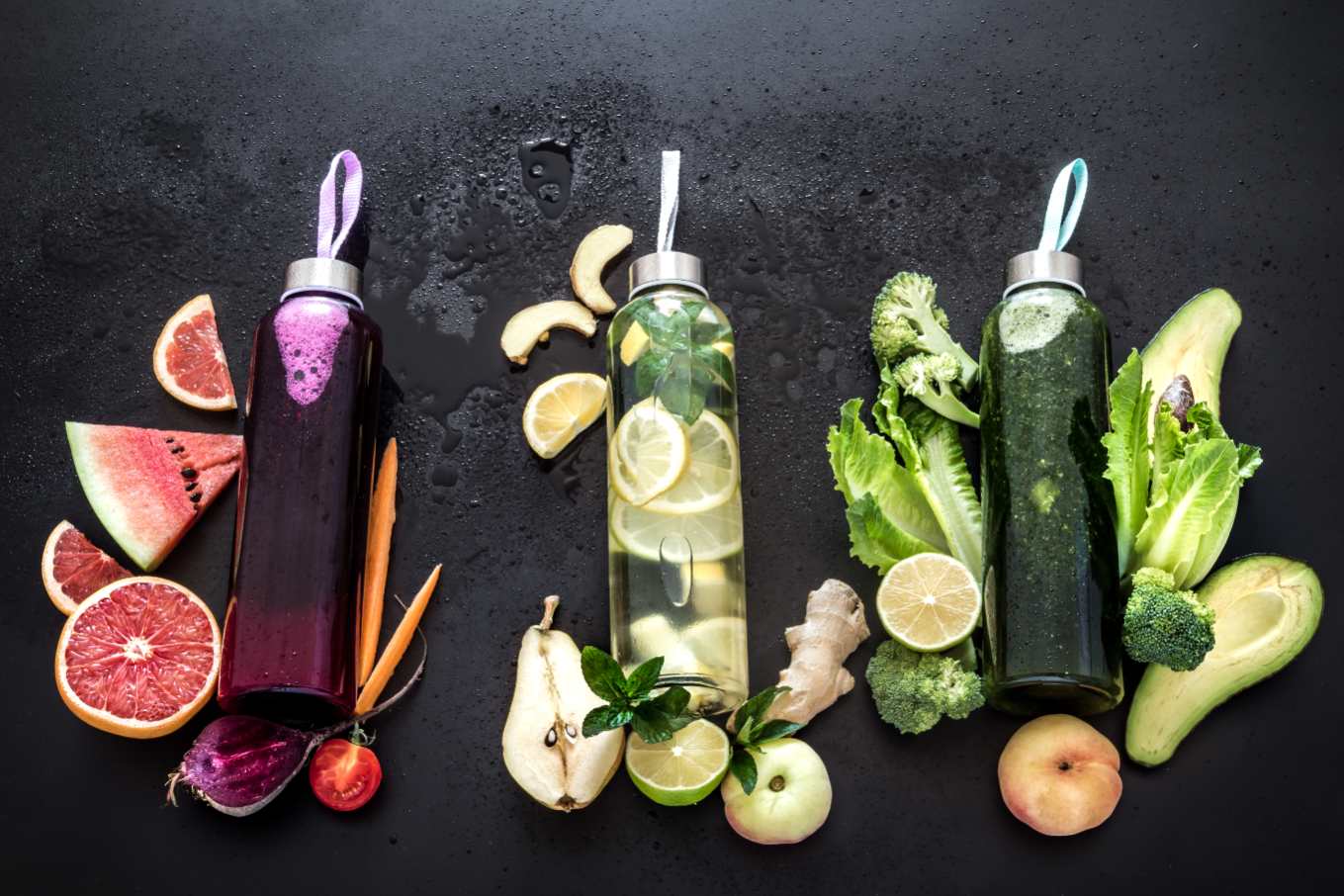
Achieving weight loss goals can be challenging, but incorporating healthy liquid diet drinks into your regimen can accelerate the process effectively. A liquid diet includes clear liquids like broth, plain gelatin, and water.
Doctors often prescribe this diet to curb digestive issues. If you plan to switch to a liquid diet for weight loss, consider going through this article to understand this diet thoroughly.
Scroll through!

Table of Contents

6 Best Liquid Diets for Weight Loss
Although hundreds of liquid diets can help you lose weight, effective navigation of such diets necessitates prior planning and knowledge. There are several types of liquid diets that one can follow, such as the following:
| Liquid Drinks | Type of Drinks |
| Detox Diets and Cleanses |
|
| Replacement Shakes |
|
| Herbal Tea |
|
| Plant-Based Milks |
|
| Apple Cider Vinegar |
|
| Protein Soups |
|
1. Detox Diets and Cleanses

Detox diets and cleanses refer to particular drinks or juices that help remove toxins from the body. Examples of this kind of diet include several juice plans and water fasting.
Dietary programs containing detox diets and cleanses include juices from particular vegetables, fruits, and other natural sources. As a result, these provide every nutrient required by one’s body.
Nutritional Value
- Protein: < 10 grams
- Healthy Fats: < 5 grams
- Fibre: < 2 grams
How Detox Diets and Cleanses Help Lose Weight?
- Detoxification programs usually reduce the number of calories consumed per day, leading to weight loss in the short term.
- Few detox plans can focus on fruits and vegetables because eating them is good for health, providing minerals, vitamins and roughages our bodies need.
2. Replacement Shakes
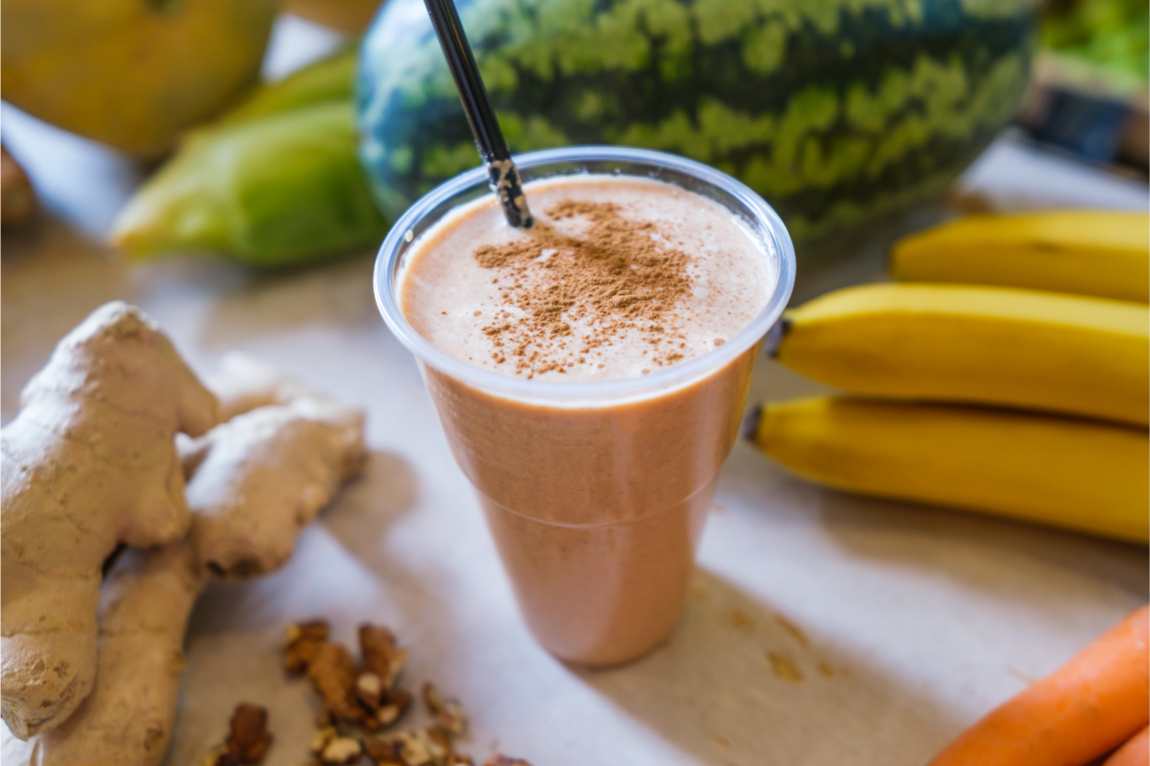
Some liquid weight-loss diets include shakes that replace meals with solid food sources. These shakes contain a lesser amount of calories than typical meals. Moreover, an individual can replace one or more meals in a day.
Meal replacement shakes are customised to include every nutrient your body requires. They contain micronutrients like vitamins and minerals and macronutrients such as protein, carbs, and fat.
Several weight loss programs use meal replacement shakes for up to many months.
Nutritional Value
- Protein: Aim for 15-20 grams per serving.
- Healthy Fats: Include 5-10 grams of healthy fats, such as avocado, nut butter, or chia seeds.
- Fibre: Add 3-5 grams of fibre with ingredients like spinach or berries.
How Replacement Shakes Help Lose Weight?
- Shakes can help control portion sizes and caloric consumption, resulting in weight loss.
- Choose shakes with protein, healthy fats, and fibre to feel full longer and prevent muscle wasting.
3. Herbal Tea

Zero-calorie herbal teas are an excellent choice for liquid diets. They have many options with diverse health benefits and flavours to entice your taste buds. Enlisted below are two of the most popular picks, alongside the potential gains they bring forth.
- Green Tea: Green tea is a standard beverage comprising metabolism-enhancing agents that help protect the cells from damage.
Nutritional Value: Antioxidants: This depends on the brewing method and steeping time (generally 200-450 milligrams per cup).
- Ginger Tea: Ginger can be an excellent remedy to soothe the digestive system and reduce vomiting and nausea.
Nutritional Value: Gingerol: 0.5-2 grams per cup (depending on ginger amount).
How does Herbal Tea help you Lose Weight?
- Consuming herb teas that do not add calories and provide satiety supplements a person's daily water intake.
- Some options like mint and ginger tea may help reduce cravings and give you a feeling of fullness.
4. Plant-Based Milks

Plant-based milk that is unsweetened or plant-based with low sugar, such as almond, oat, and soy. Compared to the other milks, they usually contain fewer calories and fat. In addition, choose those fortified with calcium and vitamin D for their higher nutritional value.
Nutritional Value
- Calories: 30-70 per cup
- Calcium: 300-500 milligrams
- Vitamin D: 100-400 IU
- Fat: 2-5 grams per cup
How Plant-Based Milks Help Lose Weight?
- Plant-based milk has less fat and calories than whole cow’s milk, making it suitable for people who want to reduce the calories they get from food.
- Some of these milk can be fortified with calcium and vitamin D, normally lost during milk processing.
5. Apple Cider Vinegar Drinks
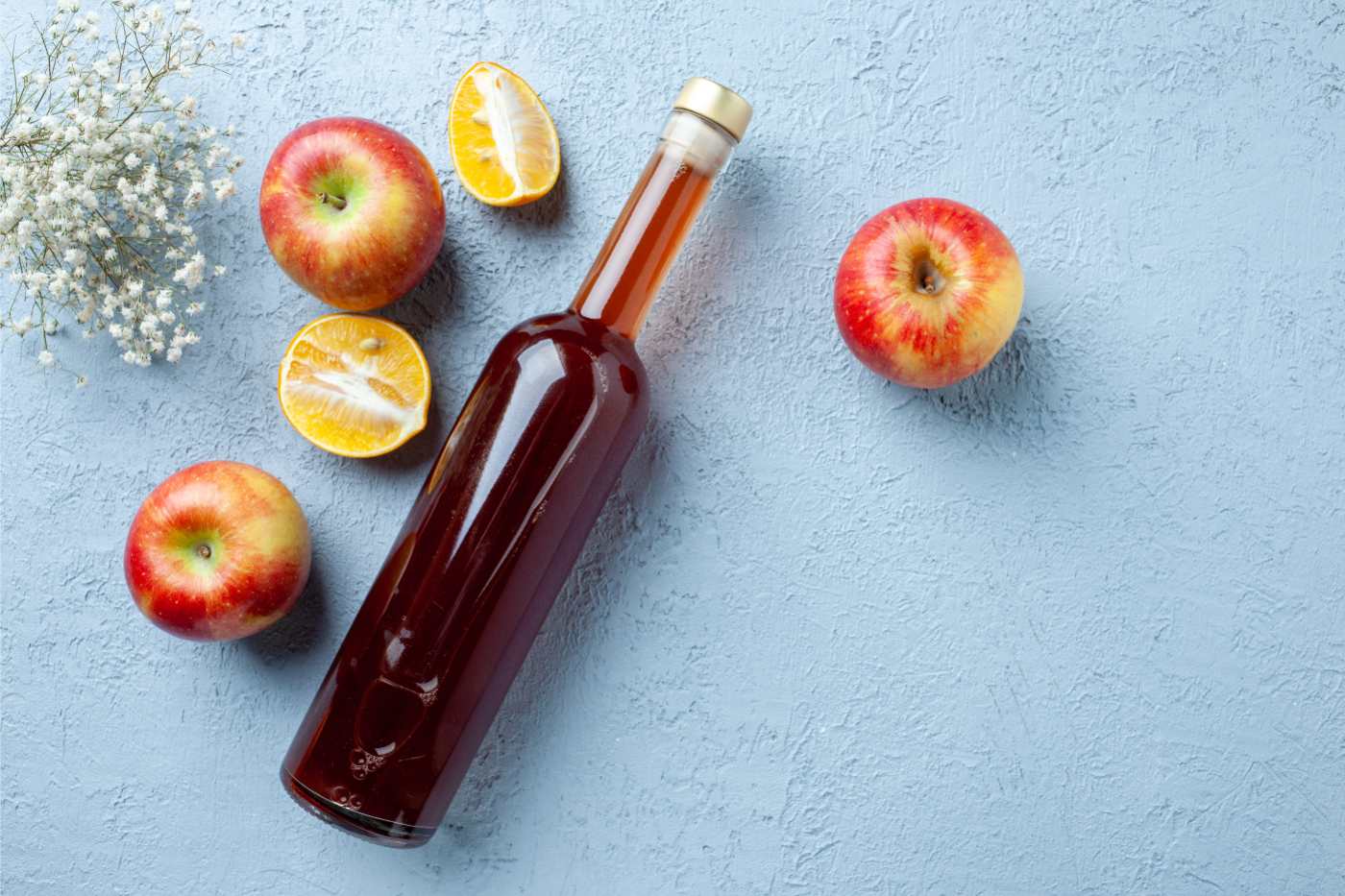
One can dilute apple cider vinegar with water to help regulate blood sugar levels and suppress appetite. Acetic acid found in apple cider vinegar assists by controlling sugar level spikes after meals, hence reducing the emergence of cravings. However, it should be consumed moderately and without dilution so tooth enamel is not damaged.
Nutritional Value
- Acetic Acid: 4-6 grams per tablespoon of apple cider vinegar.
How Does Apple Cider Vinegar Helps Lose Weight?
- Some studies suggest apple cider vinegar may help regulate blood sugar levels, potentially reducing sugar-induced cravings.
- The acetic acid in the ACV might influence hunger hormones, creating lower appetite levels.
6. Protein Soups

Lentils, beans, or chickpeas-based soups blended with vegetables and spices can be a heavy protein-rich option that could last longer than the rest. They will keep you full for longer while providing sustained energy levels. Also, add chicken or fish to your blended soup for extra protein content.
Nutritional Value
- Protein: 15-30 grams per serving, depending on protein source (lentils, beans, chickpeas, etc.)
- Fibre: 5-10 grams per serving, depending on vegetables and other ingredients.
- Vitamins and Minerals: Varies depending on the specific ingredients used.
How Protein Soup Helps Lose Weight?
- Protein helps you remain fuller for longer while facilitating the maintenance of muscles, which in turn helps you burn more calories.
- Lentil, bean or vegetable proteins make good fibre sources that aid digestion and promote satiety.
How Effective Are Liquid Diets for Weight Loss?
Individuals prefer liquid diets for several reasons, such as to cure digestive issues. Additionally, these diets benefit individuals experiencing issues with chewing food properly. However, weight loss is a common goal of taking up a liquid diet.
On this diet, solid foods can be replaced with liquids. Some also replace specific meals with drinks.
Liquid diets can be effective, similar to any diet that comprises fewer calories than one utilises. When an individual drastically reduces calorie intake, the metabolism tends to slow down to save energy.
Therefore, unless individuals change their eating habits, they will likely regain the lost weight after stopping their diet. As a result, these diets do not provide permanent and long-lasting results.
However, specific liquid diets for weight loss work better than other diets on a long-term basis. Dietary regimes, including both liquids and solid food sources, can be convenient and effective in controlling the calorie intake of individuals trying to lose weight.
Benefits of Liquid Diet on Weight Loss
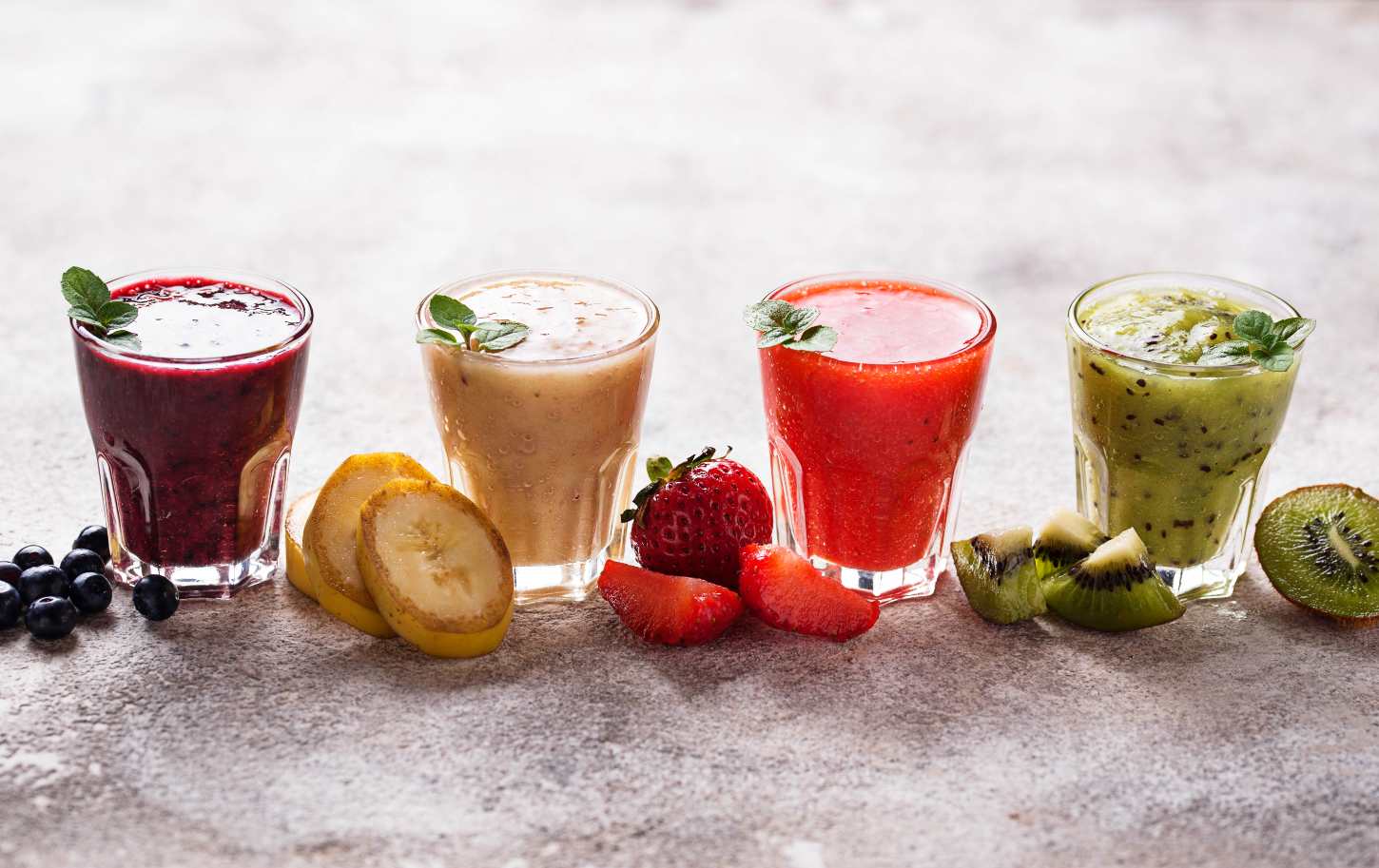
Several individuals consider liquid diets a go-to option because they improve one’s metabolic rate, support the digestive system, and detoxify the body. All of these benefits lead to eventual weight loss, alongside improved health.
Illustrated below are the various ways these diets work and the benefits of liquid diets on weight loss:
1. Detoxifying Your Body
Liquid diets are an excellent option for detoxifying the body. The juices, smoothies, and broths contain minerals, dietary fibre, and vitamins. Dietary fibre enhances gastrointestinal health and helps cleanse the digestive tract, which can accelerate weight loss.
2. Low in Calories
Liquid diets contain fewer calories because they consist of clear fluids. When an individual consumes fewer calories, the body uses its stored fat or glycogen for energy, resulting in weight loss.
According to the American Journal of Clinical Nutrition, diets containing a low number of calories, like a liquid diet with a maximum of 500 calories per day, can effectively aid in weight loss. Moreover, such a diet works better than a restricted regular or low-calorie diet.
According to a study by The International Journal of Obesity, a low-calorie diet temporarily depletes muscle glycogen. In addition, body fat decreases, again resulting in weight loss.
3. Nutritious Meals
Liquid food, such as smoothies or juices, provides rich nutrition. You can easily achieve your target weight goal if you simply replace your dinner with liquid food items with fewer calories. In addition, you should maintain a balanced intake of calories throughout the day so that your body gets enough nutrients.
4. Easy Meal Preps
When opting for a liquid diet for weight loss, you need not worry about time-consuming meal preps. Instead, place all ingredients into a blender, and your meal is ready. This is especially beneficial for those individuals who often skip meals or eat unhealthy food due to time constraints. Besides, eating unhealthy food or starvation may result in weight gain in the long run.
5. Reduced Joint Strain
For people suffering from conditions like arthritis, osteoporosis, or even temporary injuries, chewing and digesting solid foods can be painful and strenuous. Liquid meals take the pressure off the jaw and digestive system. They're easier to swallow and digest, requiring minimal effort, which can significantly relieve during recovery or chronic pain management.
6. Improved Gut Health
The human gut microbiome is a complex ecosystem teeming with trillions of bacteria, both beneficial and harmful. Including probiotic yoghurt or kefir in liquid meals can significantly boost the good bacteria population in your gut. A healthy gut microbiome is linked to improved digestion, better nutrient absorption, and a more robust immune system.
7. Mindful Eating
Liquid meals have a natural slowing effect when compared to solids on the rate at which food is eaten. You can slowly sip smoothies and soups, tasting their flavours, paying attention to your own body’s hunger. This approach to eating develops awareness and healthier attitudes toward foods and helps people lose weight in the long run.
8. Dietary Experimentation
Liquids present an exciting and easy way to familiarise himself with new ingredients and expand his diet. You may mix in fruits and vegetables that you would ordinarily not eat. Different flavours of smoothies or soups can make things more exciting by preventing diet monotony that sometimes makes dieters quit the program prematurely.
9. Boost Metabolism
While most liquid diets cause muscle loss and decreased metabolism rates, including protein-rich beverages such as smoothies or broths might produce contrary results. Protein has higher thermic effects than carbohydrates or fats, ultimately leading to an increase in metabolic rate, which promotes weight loss efforts slightly.
Tips to Lose Weight on a Liquid Diet
Although liquid diets may be an excellent way to lose weight, it is essential to approach them tactfully for long-term success. Here are some hints that can help make the most of a liquid diet:
- Choose Your Liquid Diet Type: Different liquid diets have diverse restrictions. Consult a healthcare expert or registered dietitian to determine the best option for your needs and health goals.
- Plan out your Meals: Plan your liquid meals so that you can eat a variety of nutrients while keeping within your calorie requirements. You can pre-portion ingredients or freeze smoothie packs for handy grab-and-go options.
- Variety is Key: Use different ingredients to develop tasty and exciting combinations of soups and smoothies. Doing so prevents monotony in eating while making sure you receive various nutrients.
- Boost Fibre: Most liquid diets lack fibre, which is necessary for digestion and satiety. To boost fibre, include chia seeds, flaxseed, spinach, or psyllium husk in your soups or smoothies.
- Mind the Sugar Levels: Be cautious about fruits’ hidden sugars, mainly processed ones. Use low-sugar fruits combined with healthy fats to balance sweetness and promote satiety.
- Drink Plenty of Water: Water is crucial for overall health and weight management. Aim to drink plenty of water throughout the day alongside your liquid meals.
Drinks to Avoid on a Liquid Diet for Weight Loss
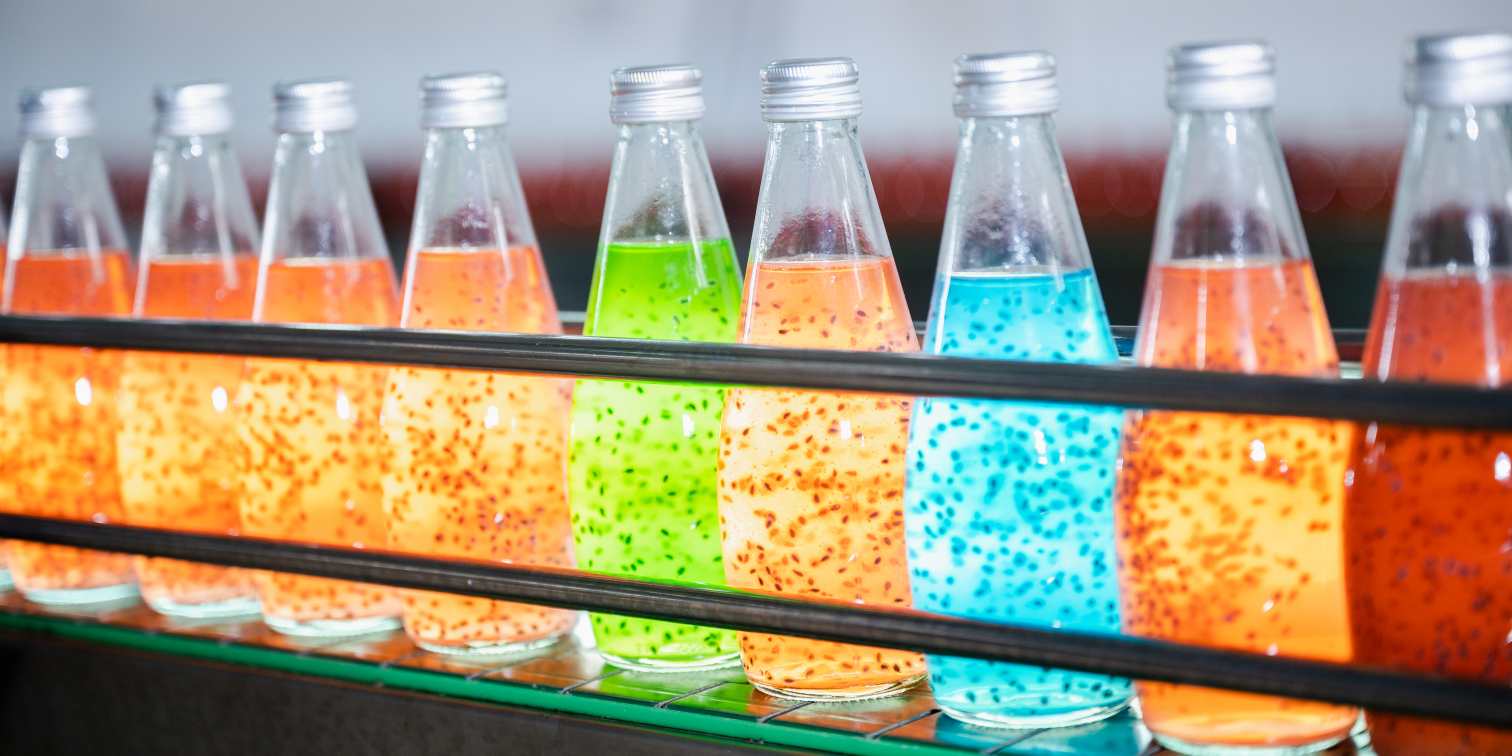
There are some drinks an individual opting for a liquid diet should stay away from. This implies avoiding sugary drinks, alcohol, fruit juices, milkshakes and many more.
Below are some liquid drinks that you should avoid:
Drinks |
Description |
| Sugary Drinks | High in sugar and calories, sugary drinks like soda, juice with added sugar, and sports drinks can hinder weight loss efforts. |
| Alcohol | Liquid calories don't provide essential nutrients and can impair weight loss. |
| Processed Liquid Meals | Packaged liquid meals may be convenient, but are high in sugar, unhealthy fats, and artificial ingredients. |
| Fruit Juices | Often high in sugar and calories without the fibre found in whole fruits, leading to blood sugar spikes. |
| Milkshakes | High in sugar, fat, and calories, making them unsuitable for weight loss. |
| Sweetened Coffee Drinks | Contain high amounts of added sugars and calories, which can contribute to weight gain. |
| Energy Drinks | High in sugar and artificial ingredients, often leading to increased calorie intake and energy crashes. |
| Flavoured Water | Often contains added sugars and artificial sweeteners, increasing calorie intake. |
| Hot Chocolate | Typically high in sugar and calories, which can hinder weight loss efforts. |
In addition, individuals should not consume foods with less nutritional value, like gelatin and popsicles. They should also strictly avoid getting most or all calories from sweet foods, such as ice cream.
By now, you must know the various aspects of a liquid diet for weight loss. These will help you make an informed decision about whether or not to try this diet to shed some kilos.










